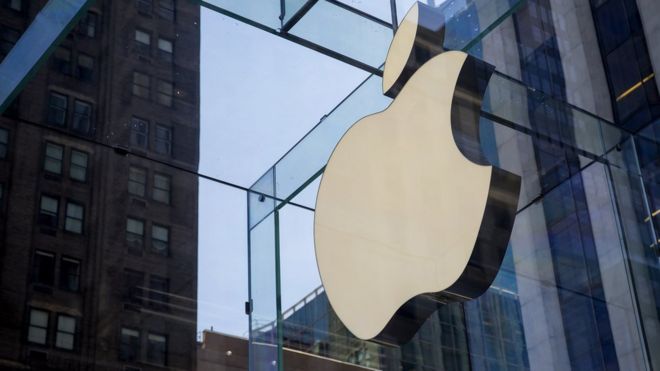
Apple has filed an appeal against a European Union ruling that it should pay up to €13bn (£11bn) in back taxes in the Republic of Ireland.
In August, the EU ruled Apple’s tax arrangements in Ireland were illegal, and demanded the record penalty.
The tech giant says it has been singled out and was “a convenient target”.
Ireland is also contesting the decision, claiming that EU regulators were interfering with national sovereignty.
Apple issued a lengthy statement, pointing it out that it was the largest taxpayer in the world, in the US and in Ireland.
It said if the EU ruling went against it, the company would pay 40% of all the corporate taxes collected in Ireland.
Apple said it paid a 26% tax rate on its worldwide earnings, but said it was correct that it paid most of that in the US.
“Because our products and services are created, designed and engineered in the US, that’s where we pay most of our tax… this case has never been about how much tax Apple pays, it’s about where that tax is paid.”
‘Misunderstood law’
Apple’s European headquarters are located in Ireland – where the standard rate of corporate tax is 12.5%.
But in August, the European Commission said that Ireland had enabled the company to pay substantially less than other businesses, in effect paying a rate of no more than 1%.
Apple and Ireland
€13bn
demanded in back taxes. Equal to:
- ALL of Ireland’s healthcare budget
- 66% of its social welfare bill
- 15 million iPhones
- 27% of Apple’s 2015 profit
On Monday, in a strongly-worded statement, Ireland’s finance ministry Ireland’s finance ministry said that the European Commission had “misunderstood the relevant facts and Irish law”.
“Ireland did not give favourable tax treatment to Apple – the full amount of tax was paid in this case and no state aid was provided,” it said. “Ireland does not do deals with taxpayers.”
Apple’s general counsel Bruce Sewell told the Reuters news agency that the commission had disregarded tax experts brought in by Irish authorities.
“Apple is not an outlier in any sense that matters to the law. Apple is a convenient target because it generates lots of headlines,” Mr Sewell said.
Even if Apple lost its appeal, the record tax bill should not be a problem for iPhone maker, which saw a net profit of $53bn in the 2015 financial year.
Apple is not the only company that has been targeted for securing favourable tax deals in the European Union.
Last year, the commission told the Netherlands to recover as much as €30m (£25.6m) from Starbucks, while Luxembourg was ordered to claw back a similar amount from Fiat.
[sOURCE:-BBC]



